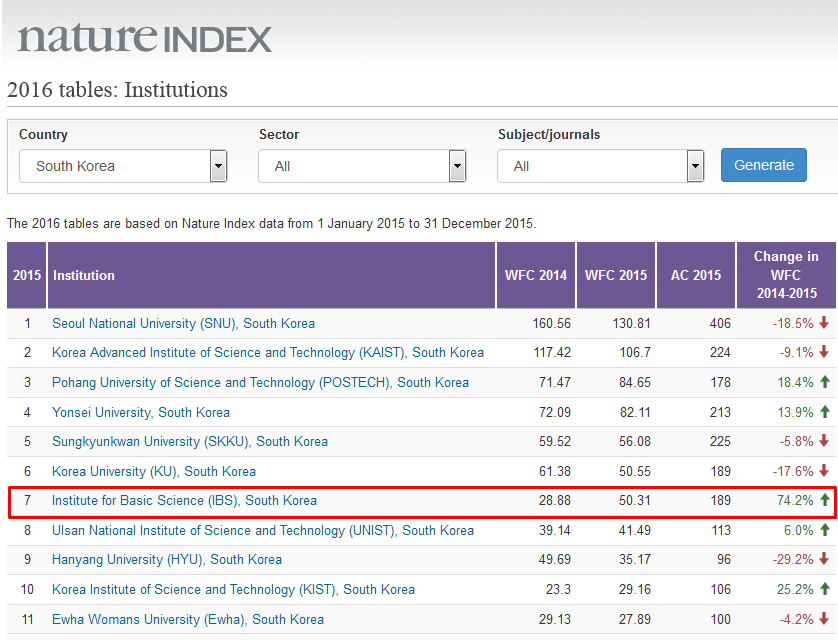주메뉴
- About IBS 연구원소개
-
Research Centers
연구단소개
- Research Outcomes
- Mathematics
- Physics
- Center for Theoretical Physics of the Universe(Particle Theory and Cosmology Group)
- Center for Theoretical Physics of the Universe(Cosmology, Gravity and Astroparticle Physics Group)
- Center for Exotic Nuclear Studies
- Center for Artificial Low Dimensional Electronic Systems
- Center for Underground Physics
- Center for Axion and Precision Physics Research
- Center for Theoretical Physics of Complex Systems
- Center for Quantum Nanoscience
- Center for Van der Waals Quantum Solids
- Chemistry
- Life Sciences
- Earth Science
- Interdisciplinary
- Institutes
- Korea Virus Research Institute
- News Center 뉴스 센터
- Career 인재초빙
- Living in Korea IBS School-UST
- IBS School 윤리경영


주메뉴
- About IBS
-
Research Centers
- Research Outcomes
- Mathematics
- Physics
- Center for Theoretical Physics of the Universe(Particle Theory and Cosmology Group)
- Center for Theoretical Physics of the Universe(Cosmology, Gravity and Astroparticle Physics Group)
- Center for Exotic Nuclear Studies
- Center for Artificial Low Dimensional Electronic Systems
- Center for Underground Physics
- Center for Axion and Precision Physics Research
- Center for Theoretical Physics of Complex Systems
- Center for Quantum Nanoscience
- Center for Van der Waals Quantum Solids
- Chemistry
- Life Sciences
- Earth Science
- Interdisciplinary
- Institutes
- Korea Virus Research Institute
- News Center
- Career
- Living in Korea
- IBS School
News Center
| Title | Nature Index says IBS expands its global credentials with a soaring contribution to high quality scientific research | ||||
|---|---|---|---|---|---|
| Name | Department of Communications | Registration Date | 2016-05-06 | Hits | 3187 |
| att. |
 thumb.jpg
thumb.jpg
|
||||
Nature Index says IBS expands its global credentials with a soaring contribution to high quality scientific research- IBS increased its contribution to top-tier research at a whopping 74.2% in 2015 alone, bolstering its position as Korea’s top research institution - The Institute for Basic Science (IBS) has shown its rapidly growing global presence, ranking as Korea’s top research institution in the prestigious Nature index. In the 2016 Nature Index, which tracks the world’s best natural science research, IBS grew at a remarkable growth rate of 74.2% in 2015 alone, taking the 251st among the 500 institutions listed in the index. The 2016 Nature Index is a database of author affiliation information collated from primary research articles published by 68 high-quality science journals from January 1-December 31, 2015. The database is compiled by the NPG. The index tallies the number of articles (AC) published by universities and research institutions. It also measures the contribution of researchers to articles, by a metric called weighted fractional count (WFC), which divides credit for each article by the affiliations of contributing authors. This measure is weighted to account for the disproportionate number of astronomy articles in the index.[1] The Nature Index provides a close to real-time proxy for high-quality research output at institutional, national and regional level. [2] Between 2014 and 2015 IBS scientists’ contribution to articles published in index-associated journals continued on a sharp increase from 14.51 in 2014 and 28.88 in 2015. Even more impressive, the growth rate of IBS and its contribution to high-quality scientific research outpaced every other institution in the top 250 of the Nature Index table. Among the top 250 institutions, Nankai University (NKU) in China showed the highest increase rate of its contribution to high-quality research of 53.6%.* Behind this rapidly improved performance are 26 IBS Centers with less than five years in operation. As these Centers have recently been operating in full swing, their strong research credentials have begun to bear fruit. More interestingly, IBS’ stunning growth rate is just the beginning of more remarkable outputs within IBS Centers, considering that they are very new research institutions with plenty of room for growth. For example, in the newly updated Nature Index table (based on papers from February 1, 2015 – January 31, 2016), IBS maintained its robust contribution rate, nearly 9%, to top quality research. In its March 2014 press release, the NPG noted that IBS, being an integral element of the Korean’s government’s commitment to strengthening basic science, would no doubt provide increasing contributions in raising the national scientific research outputs. The 500 institutions listed in the Nature Index span 415 universities and 85 research institutions and corporations, the list is a testament to the fact that IBS has joined the league of the world’s leading research institutions, including the European Organization for Nuclear Research in Switzerland (CERN, WFC: 62.57, 204th), the Medical Research Council in the U.K. (MRC, WFC: 54.72, 227th), Karolinska Institute in Sweden (WFC: 52.44, 235th) and the Salk Institute for Biological Studies in the U.S. (WFC: 46.46, 269th). IBS president KIM Doochul commented, "In the recent Nature Index, IBS stood out among other large and global institutions thanks to its high-quality research outcomes." President Kim also said IBS’ impressive performance served as an exemplary model of an efficient group research system, comprising top scientists from across all research fields. "IBS will keep up this momentum and push forward with its vision to become a world’s leading research institution in basic science." More information about the Nature Index is available at (www.natureindex.com)
[1] http://www.natureindex.com/news-blog/us-tops-global-research-performance [2] http://www.natureindex.com/faq * In a total of 500 institutions listed according to the increase rate of their contribution to high-quality papers, the Southwest University (SWU) in China topped with 100.1%, followed by the University of the Basque Country UPV/EHU in Spain, IBS and Chongqing University (CQU) in China with 93.3, 74.2 and 73.9 respectively. |
|||||
| Next | |
|---|---|
| before |
- Content Manager
- Public Relations Team : Suh, William Insang 042-878-8137
- Last Update 2023-11-28 14:20












